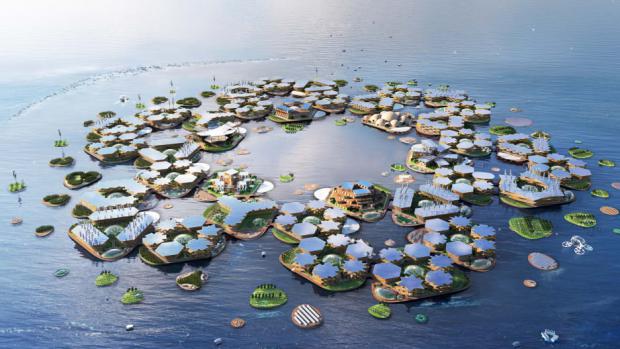
Breaking News
 NYU Prof: Trump's Whole Milk Push Is 'Dog Whistle To Far-Right'
NYU Prof: Trump's Whole Milk Push Is 'Dog Whistle To Far-Right'
 Local Police Are Finally Arresting Anti-ICE Agitators In Minnesota
Local Police Are Finally Arresting Anti-ICE Agitators In Minnesota
 Watch: Bondi Explodes Over Epstein During Shouting Match With Massie And Top Dems
Watch: Bondi Explodes Over Epstein During Shouting Match With Massie And Top Dems
Top Tech News
 Drone-launching underwater drone hitches a ride on ship and sub hulls
Drone-launching underwater drone hitches a ride on ship and sub hulls
 Humanoid Robots Get "Brains" As Dual-Use Fears Mount
Humanoid Robots Get "Brains" As Dual-Use Fears Mount
 SpaceX Authorized to Increase High Speed Internet Download Speeds 5X Through 2026
SpaceX Authorized to Increase High Speed Internet Download Speeds 5X Through 2026
 Space AI is the Key to the Technological Singularity
Space AI is the Key to the Technological Singularity
 Velocitor X-1 eVTOL could be beating the traffic in just a year
Velocitor X-1 eVTOL could be beating the traffic in just a year
 Starlink smasher? China claims world's best high-powered microwave weapon
Starlink smasher? China claims world's best high-powered microwave weapon
 Wood scraps turn 'useless' desert sand into concrete
Wood scraps turn 'useless' desert sand into concrete
 Let's Do a Detailed Review of Zorin -- Is This Good for Ex-Windows Users?
Let's Do a Detailed Review of Zorin -- Is This Good for Ex-Windows Users?
 The World's First Sodium-Ion Battery EV Is A Winter Range Monster
The World's First Sodium-Ion Battery EV Is A Winter Range Monster
 China's CATL 5C Battery Breakthrough will Make Most Combustion Engine Vehicles OBSOLETE
China's CATL 5C Battery Breakthrough will Make Most Combustion Engine Vehicles OBSOLETE
Floating cities once seemed like sci-fi. Now the UN is getting on board

Bjarke Ingels Group and a company called Oceanix presented a wild concept for floating cities at the UN this week, imagining completely self-sufficient communities in the era of sea level rise.
In 2007, entrepreneur Mark Collins Chen became the minister of tourism in his native French Polynesia. One of his first tasks was to assess whether sea level rise was a threat to the group of 118 islands, located in the South Pacific. He quickly learned that one-third of all of the French Polynesian islands would be submerged by either 2035 or 2050–depending on which scientist you spoke to.
To respond to the coming crisis, Chen (who served as minister of tourism for a year) wants to build groups of floating islands that would be able to act as new human settlements not only for French Polynesia, but for the countless other islands that will suffer a similar fate–as well as the many global cities that are located on the coast. An estimated 2.4 billion people–40% of the world's population–live in a coastal region and will likely be impacted by rising sea levels as a result of climate change. In late 2018, Chen started a company called Oceanix that is aimed at building the off-shore urban infrastructure that will help people weather the problems of rising seas–as well as extreme floods and storms.

 A Defense of 1950s Housewives
A Defense of 1950s Housewives


